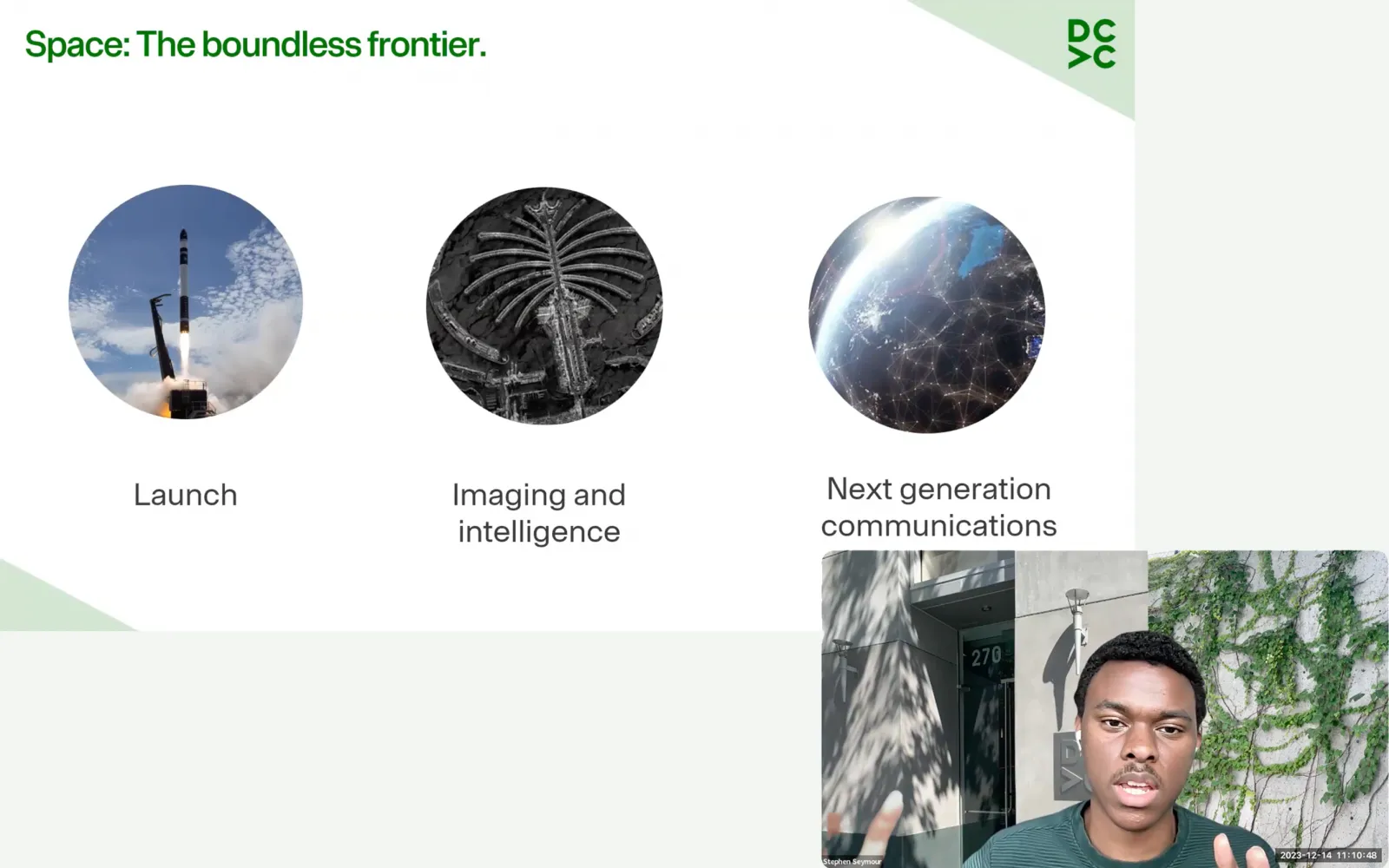
Fourth Power
Building thermal energy storage technology to buffer the grid, as variable electricity sources replace polluting ones
When Stephen Seymour decided to attend the inaugural Black in Deep Tech Summit during his senior year at Morehouse College in 2020, he didn’t realize how profoundly it would impact his career trajectory. Organized by the Black Venture Capital Consortium (BVCC) in association with DCVC, the summit sparked Seymour’s interest in the deep-technology startup ecosystem. Within months of participating in the summit, Seymour had overhauled his career plan: instead of taking a job with a well-known tech giant on the West Coast, he landed a summer internship at DCVC to move closer to the cutting edge. By the end of the summer, the firm brought him on as an Associate.
Seymour was reminded of his serendipitous journey from Morehouse to deep tech in December as he attended and presented at the Deep Tech AI Summit organized by BVCC and DCVC, which brought together more than 200 researchers, engineers, developers, students, and entrepreneurs to learn firsthand how deep-tech startups are applying advanced AI in novel ways. Perhaps more than anyone, Seymour understands the potential of such events to open new horizons for aspiring founders and VCs.
“The first Black in Deep Tech Summit was a turning point for me; it opened my eyes to the exciting possibilities beyond a traditional tech career path,” said Seymour.
BVCC Founder and President Malcolm Robinson said the organization seeks to identify, educate, and train top-performing students from historically Black colleges and universities (HBCUs) and place them in the venture capital ecosystem.
“Since BVCC’s creation more than five years ago, thousands of students have participated in our programs, over 100 have landed deep-tech and VC internships, and we’ve placed about 50 students in full-time roles in that ecosystem,” Robinson said, adding that the summits play a key role in the organization’s mission by providing a forum for the Black scientific, engineering, and academic community to interact with and learn from deep-tech founders and VCs.
DCVC Partner Alan Cohen said the firm has partnered with BVCC since 2020 to organize the summits with the aim of making them career-defining opportunities.
“In collaborating with BVCC to organize these events, we’re seeking to open the aperture to a community of talent that has either been overlooked or is geographically not close to Silicon Valley, and to share a detailed look at our industry: how founders work, how they build their thesis, how they build their companies, what are the big problems and challenges they’re trying to solve,” Cohen said.
Reflecting on the focus of the most recent summit, Cohen emphasized the evolving landscape of AI and its potential to democratize business formation. He noted that as AI capabilities are increasingly delivered from the cloud, there’s a growing opportunity for more geographically distributed business creation and technical collaboration. This modern paradigm will allow communities of academics, tech professionals, and HBCU students, among others, to engage with tech innovation without being based in traditional hubs like Silicon Valley.
For his part, Seymour emphasized the critical need for diverse talent in deep tech, citing the variety of backgrounds and perspectives required to identify and solve civilization-level challenges. This diversity in thought and experience is key, as demonstrated by DCVC’s recent investment in Fourth Power, a grid-scale thermal energy storage company founded by past summit participant and HBCU graduate, Dr. Asegun Henry. Henry’s background and insights exemplify the unique contributions HBCU alumni bring to innovative deep tech solutions, Seymour said.
Seymour sees more opportunities for deep tech to address challenges facing communities of color — notably, targeted research in biotech focused on diseases prevalent across the African diaspora, solutions to help at-risk communities adapt to climate change, and infrastructure to expand global Internet access. These insights underscore the importance of diverse backgrounds in expanding the scope of challenges addressed in technology, leading to richer, more inclusive solutions that address larger markets, he said.
DCVC Co-Founder and Managing Partner Matt Ocko agreed, saying that the deep tech VC industry has a responsibility to seek out and open doors for diverse and highly capable future leaders who can bring new insights and talent to the trillion-dollar problems it aims to solve.
“By creating access and visibility for talented people who have traditionally been excluded despite demonstrated merit and excellence, BVCC expands the funnel of talented founders, engineers, and investors,” Ocko said. “DCVC is proud to support their work, and we look forward to seeing the new companies and solutions that emerge from communities connected through programs like the Black in Deep Tech Summit.”




